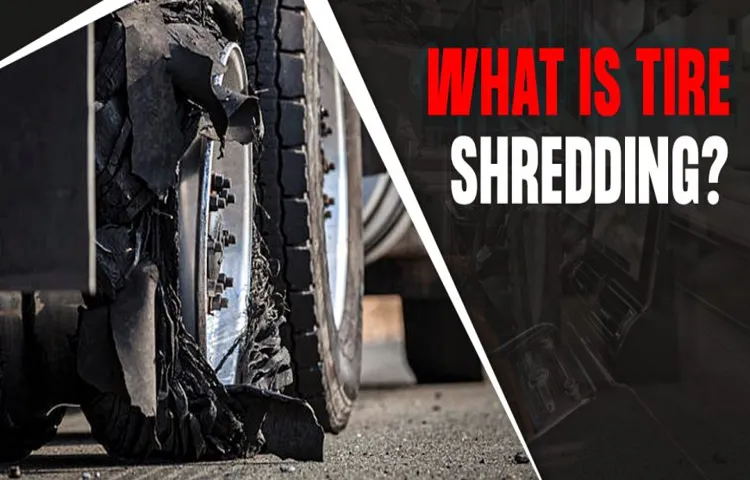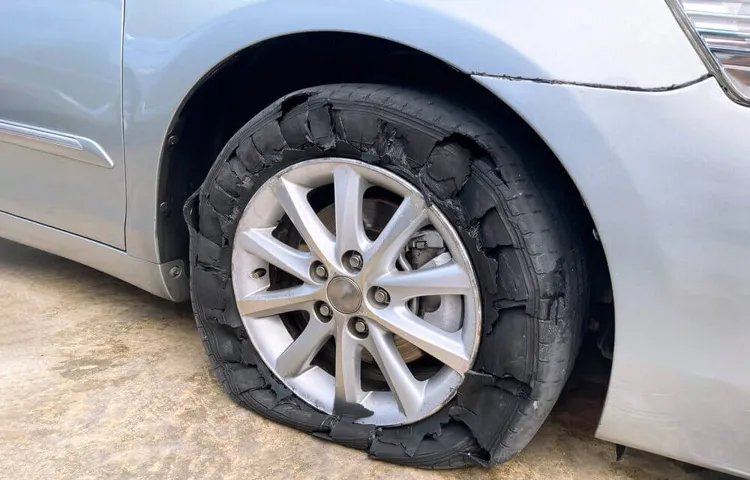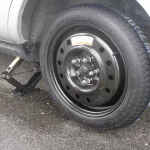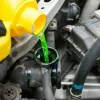Have you ever experienced the frustration of driving and suddenly noticing your tire shredded? It’s definitely not a pleasant experience, and it’s both dangerous and costly to replace your tires frequently. But why does it keep happening? The reasons could vary. Several factors can cause tire shredding, from poor road surfaces and worn-out tires to overloading your car or a misaligned steering system.
Knowing what’s causing your tire woes is essential to prevent any future mishaps and ensure that your driving is always safe and steady. In this blog, we analyze some of the possible reasons why your tire keeps shredding and how to spot and fix these issues to keep your wheels rolling smoothly.
Table of Contents
Tire Quality and Durability
Are you wondering why your tire keeps shredding? One of the most common reasons for tire shredding is poor tire quality and durability. If you’re purchasing low quality tires, they are more likely to wear down faster and shred, especially if you are driving on rough terrain. It’s important to invest in high quality, durable tires to ensure longevity and safety while driving.
Additionally, factors such as improper tire pressure, alignment and tire rotation can also contribute to tire shredding. If you notice your tire shredding frequently, it’s best to consult with a professional to address any underlying issues. Choosing the right tire for your vehicle and driving habits can make a significant difference in the longevity and performance of your tires.
So, always invest in quality and ensure proper maintenance to avoid frequent tire shredding.
Low-Quality Manufacturing Materials
When it comes to tire quality and durability, the manufacturing materials used play a significant role. Low-quality materials will not only result in a shorter lifespan for your tires but also increase the likelihood of blowouts and punctures. This is why it’s crucial to invest in high-quality tires from reputable manufacturers.
A good-quality tire, made from durable materials, can withstand harsh road conditions, varying weather conditions and offer better stability and handling. Additionally, investing in good quality tires can lead to better fuel efficiency, ensuring you save money in the long run. Think of it like buying a sturdy pair of shoes: they might cost a little more initially, but they will last longer and keep your feet more comfortable in the long run.
The same goes for your tires – invest in quality materials, and you’ll reap the benefits for years to come.

Overloading and Improper Inflation
Tire Quality and Durability is a crucial aspect to consider when it comes to motor vehicle maintenance. One of the factors that can affect your tire’s longevity is Overloading. Putting too much weight on your tires can cause them to wear out faster than they should.
When trying to load up your car or truck, make sure to never exceed the recommended weight limits. Additionally, Improper Inflation can also affect your tire’s quality and durability. Your tire’s air pressure should be checked periodically to prevent over or under inflation.
If you overinflate, your tires can become stiff and unable to absorb shock caused by rough roads. On the other hand, underinflating your tires will lead to more friction and cause heat buildup which can eventually lead to tire failure. Proper tire maintenance and care can help ensure your tires last longer.
By regularly checking your tire’s pressure and not overloading your vehicle, you can increase your tire’s durability and safety on the road.
Road Conditions and Driving Habits
If you’re experiencing a frequently shredded tire, there could be several factors at play. One of the most common culprits is road conditions. Potholes, sharp debris, and uneven surfaces can all cause damage to your tires.
Additionally, driving habits such as sudden braking, aggressive acceleration, and taking turns too quickly can also contribute to tire wear. It’s essential to check your tires regularly for signs of damage and maintain proper inflation levels to prolong their lifespan. Investing in high-quality tires designed for your specific vehicle and driving conditions can also help prevent frequent shredding.
Remember, taking care of your tires is not only necessary for your safety but also saves you money in the long run.
Potholes and Debris on the Road
Have you ever had to swerve to avoid a deep pothole on the road? Or maybe you’ve had to navigate around a pile of debris that fell off a truck? These road conditions can be hazardous and even cause damage to your car. It’s important to stay alert and cautious while driving, especially when road conditions are poor. Potholes can damage your car’s tires and suspension system, leading to costly repairs.
Debris on the road can cause punctures or damage to your vehicle’s undercarriage. To avoid these issues, maintain a safe speed, keep a safe distance from the vehicles in front of you, and scan the road ahead for potential hazards. Remember, it’s better to be safe than sorry and take the necessary precautions to protect yourself and your vehicle.
Excessive Speeding and Harsh Braking
When it comes to driving, road conditions and driving habits can play a significant role in how safe you are on the road. One common issue that can lead to accidents is excessive speeding and harsh braking. Both of these habits can be incredibly dangerous, especially on roads that are in poor condition, such as those with potholes or uneven surfaces.
When you speed, you have less time to react to unexpected obstacles or changes in traffic patterns. Meanwhile, harsh braking increases your risk of losing control of your vehicle or colliding with the car behind you. To stay safe on the road, it’s crucial to adjust your driving habits to suit the conditions you’re driving in.
This means slowing down when roads are in poor condition or heavy traffic is present and using smooth braking techniques to avoid sudden stops. By being mindful of your driving habits and the condition of the road, you can minimize your risk of accidents and keep yourself and others safe.
Improper Installation and Maintenance
If you find yourself Googling “why does my tire keep shredding,” the answer may lie in improper installation and maintenance. It’s important to ensure that your tires are installed correctly by a professional to avoid any issues down the road. If a tire is installed incorrectly, it may be prone to shredding due to uneven wear and tear.
Additionally, regular maintenance is necessary to prevent tire failure. Regularly checking tire pressure and inspecting for any damage or signs of wear can help prevent shredding. Neglecting to maintain your tires can lead to unexpected blowouts and accidents.
Don’t let improper installation and maintenance be the reason for your shredded tires – take the necessary steps to maintain your vehicle’s safety and performance.
Misaligned Wheels and Suspension Issues
Improper installation and maintenance of wheels and suspension systems can lead to misaligned wheels and suspension issues. This can negatively affect your vehicle’s handling, performance, and safety. One common cause of misaligned wheels is improper tire mounting.
If the tire is not mounted evenly on the wheel or is not balanced properly, it may cause vibrations and uneven wear on the tire, resulting in misalignment. However, misaligned wheels can also be caused by worn or damaged suspension components, such as ball joints, tie rods, or bushings. That’s why it’s important to have your suspension system inspected and maintained regularly by a professional mechanic to ensure everything is in proper working order.
Neglecting maintenance can lead to costly repairs and compromise your vehicle’s overall performance and safety. So, take care of your wheels and suspension, and they’ll take care of you on the road.
Neglected Tire Rotations and Balancing
One of the most common causes of premature tire wear is neglecting tire rotations and balancing. Many drivers forget to have their tires rotated and balanced, while others skip these essential maintenance tasks altogether. When tires are not rotated and balanced regularly, they become unevenly worn and develop flat spots.
This not only affects the tire’s performance but also reduces its lifespan. Moreover, improperly installed tires can also damage your vehicle’s suspension and steering components, leading to costly repairs. To ensure your tires last longer and perform optimally, it’s essential to have them rotated and balanced every 5,000 miles or so.
This simple maintenance task can add thousands of miles to the life of your tires and save you from expensive repairs down the road. So, if you want your tires to last longer and keep your vehicle running smoothly, don’t skip these essential maintenance tasks.
Conclusion and Prevention Tips
Well, it seems your tire has developed a habit of shedding like a pet cat sheds its fur. But unlike a cat, it’s not just a harmless side effect of being alive. There could be a variety of reasons for your tire’s shredded state – maybe it’s getting too old, or you’re driving on rough roads, or perhaps you’re just cursed with some bad tire juju.
Whatever the cause, one thing is for sure – you’re going to need a new tire (or maybe a whole set if there’s an underlying issue) if you want to keep your ride safe and smooth. So buckle up, head to the tire shop, and let’s put this shredded rubber behind us.”
Choosing Quality Tires and Inflation Checks
Proper tire installation and maintenance play a crucial role in ensuring the safety and performance of your vehicle. When choosing tires, it’s essential to prioritize quality over price. A high-quality tire will not only last longer but also provide better traction, handling, and overall performance.
Improperly installed tires or those that are under-inflated can be extremely dangerous. It increases the risk of blowouts, accidents and can cause premature tire wear. Regular inflation checks are necessary to ensure that your tires are in the proper condition.
Low tire pressure can affect fuel efficiency and cause unnecessary wear and tear. Just like changing the engine oil and other car maintenance checks, tire inspection should be part of your routine. Follow the manufacturer’s recommendations for tire pressure and never exceed the maximum weight load.
Proper tire maintenance will prevent expensive repairs and keep you and your passengers safe on the road.
Safe Driving Habits and Regular Maintenance
Safe Driving Habits and Regular Maintenance are crucial for the longevity of your vehicle. Improper installation and maintenance can lead to costly repairs and even accidents on the road. It is important to follow the manufacturer’s guidelines and instructions when it comes to installation and maintenance.
For instance, using the wrong type of oil can lead to engine damage and can void your warranty. Regular oil changes, tire rotations, and brake inspections are important for the safety and reliability of your vehicle. Don’t forget to also check your headlights, taillights, and turn signals to ensure they are working properly.
Not only will this help you avoid getting pulled over, but it can also prevent accidents. Keep in mind that properly maintaining your vehicle is not only important for your own safety but also for the safety of others on the road.
FAQs
What could be causing my tire to shred repeatedly?
There could be several reasons why this is happening, including worn suspension parts, misaligned wheels, or running over debris on the road. Have a mechanic inspect your vehicle to identify the root cause.
Can a tire tread pattern affect shredding?
Yes, a tire with an aggressive or uneven tread pattern can increase the chances of shredding. Ensure that your tires have a proper tread depth and a uniform pattern.
How often should I check my tire pressure to prevent shredding?
It is recommended to check tire pressure at least once a month, as underinflation or overinflation can lead to premature tire failure and shredding.
Does driving style affect tire shredding?
Yes, aggressive driving, hard braking, and fast acceleration can increase the stress on your tires, leading to shredding. Try to drive smoothly and avoid sudden maneuvers.
Is it possible to repair a shredded tire?
It depends on the severity of the damage. Small punctures or cuts can often be repaired, but larger tears or shredding will require a replacement tire.
Can extreme weather conditions contribute to tire shredding?
Yes, hot temperatures and overexposure to sunlight can cause a tire’s rubber to deteriorate and weaken, leading to shredding. Similarly, cold weather can cause tires to stiffen and crack.
How do I select the right type of tire to prevent shredding?
Choose a tire that is appropriate for your vehicle’s make and model, and consider factors such as size, load capacity, and the type of driving you will be doing. Consult with a tire specialist if you are unsure.



